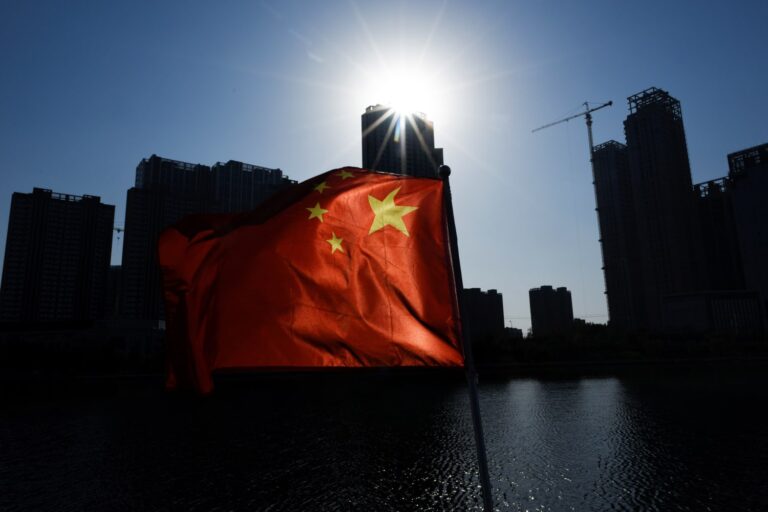China’s Foreign Ministry said on Wednesday it had halted early-stage nuclear arms control talks with the United States in protest at U.S. arms sales to the democratic island of Taiwan, which China claims as its territory.
Analysts said China’s decision could deal a serious blow to global arms control efforts, with Beijing joining Moscow in refusing to discuss measures with Washington to curb the nuclear arms race.
Chinese Foreign Ministry spokesman Lin Jian said repeated U.S. arms sales to Taiwan in recent months had “seriously undermined the political atmosphere for continuing arms control discussions.”
“As a result, the Chinese side has decided to postpone new talks on arms control and nuclear non-proliferation with the United States. The responsibility lies entirely with the United States,” Lin told a regular news conference in Beijing.
Lin said China is willing to maintain communication on international arms control, but the United States “must respect China’s core interests and create the necessary conditions for dialogue and exchanges.”
State Department spokesman Matthew Miller said China had chosen to follow Russia’s lead, arguing that it could not pursue arms control talks as long as there were other challenges in the bilateral relationship.
“We believe this approach undermines strategic stability and increases the risks of an arms race,” Miller told reporters.
“Unfortunately, by suspending these discussions, China has chosen not to pursue efforts to manage strategic risks and prevent a costly arms race. However, we in the United States remain open to working with China to develop and implement concrete risk reduction measures.”
U.S. President Joe Biden’s administration has insisted on a “compartmentalization” policy that separates nuclear arms control negotiations from other issues between the United States and China.
China’s decision comes just over a month after the Biden administration said the United States may need to field more strategic nuclear weapons to deter growing nuclear threats from China and Russia.
Daryl Kimball, executive director of the Arms Control Association, said the United States, Russia and China, as signatories to the Nuclear Non-Proliferation Treaty, the cornerstone of global arms control, have a legal obligation “to participate in talks to prevent an arms race.”
“The only way that can be achieved is through serious dialogue, and Russia’s refusal to do that and China’s decision to do so is a very serious setback,” he said.
U.S. and Chinese officials resumed talks on nuclear weapons in November, but formal arms control negotiations were not expected to take place anytime soon, despite U.S. concerns about China’s rapid nuclear arsenal buildup.
According to U.S. estimates, China has 500 operational nuclear warheads and could have more than 1,000 by 2030.
U.S. officials have expressed frustration that China has shown little interest in discussing steps to reduce the risks of nuclear weapons, but China has long maintained that the United States already has a much larger nuclear arsenal.
The United States has a stockpile of about 3,700 nuclear warheads, including roughly 1,419 deployed strategic warheads. Russia has about 1,550 deployed nuclear weapons and, according to the Federation of American Scientists, has a stockpile of 4,489 warheads.
The United States is Taiwan’s most important international backer and arms supplier despite the lack of formal diplomatic ties, and China has repeatedly called for an end to such sales.
For the past four years, Taiwan has protested against increased Chinese military activity in its waters, including almost daily activity by Chinese military aircraft and warships.

